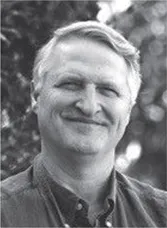
Origins
The Ancient Impact and Modern Implications of Genesis 1-11
Paul Copan, Douglas Jacoby
- English
- ePUB (adapté aux mobiles)
- Disponible sur iOS et Android
Origins
The Ancient Impact and Modern Implications of Genesis 1-11
Paul Copan, Douglas Jacoby
À propos de ce livre
Origins turns much of what Christians learned in Sunday School on its head in a revealing comparison of the Genesis narrative to the competing pagan narrative of the day. Relatively few Bible readers are familiar with the world of the ancient Near East, centered in Mesopotamia and its most prominent city, Babylon. The culture, literature, religions, geography, etc. of the early biblical period dramatically influenced what was written and why and without an understanding of these elements, the purposes, meanings, and structure of the text are easily misread by modern readers and reduces the primeval narrative to a collection of Sunday School stories. Origins, while acknowledging the agendas of modern readers, remains on track in expounding on the ancient agenda. Paul Copan and Douglas Jacoby address the doubts of those who find stumbling blocks in early Genesis, facing the tough questions head on and providing biblical solution to many of the "problem passages." Origins surprises and amazes all seekers, new believers, and veterans of Scripture alike as it devastates the polytheistic, pagan assumptions and proclaims the true God.
Foire aux questions
Informations
ABOUT THE AUTHORS


- •One area is authorship. Moses is responsible for part, but not all, of the Torah. And yet the entire Law is attributed to him, in the same way that the book of Psalms as a whole is attributed to David, even though many psalms themselves do not support his direct authorship (naming instead Asaph, Solomon, the Sons of Korah, and others). For more on the authorship of Genesis, see https://www.douglasjacoby.com/?p=16516.
- •Literary (or oral) sources are a second area for another study, and we trust that careful OT scholars who detect sources are as cautious as they are discerning.
- •A third area on which we will only barely touch is the debate about science and Genesis. This is generally uncontroversial among Christians in the biological sciences, and yet it can be highly divisive among believers outside the sciences, or those unfamiliar with genetics, geology, cosmology, and other fields. The fast pace of modern science means that the nonspecialist or general reader can barely manage to keep up with the trends along the frontiers of knowledge.